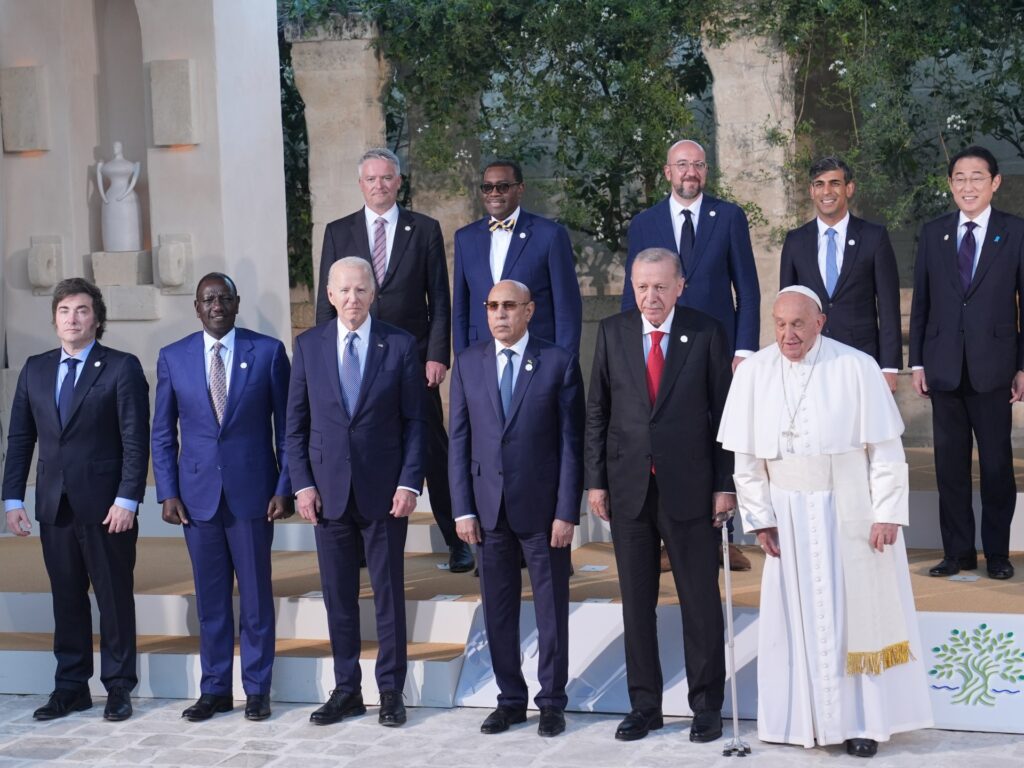We need a new international framework that prioritizes the rights of the oppressed over the interests of the powerful.
The current international system, established after the Second World War, is struggling to address many of the challenges and problems the world currently faces. Driven by the interests and aspirations of certain nations, it fuels conflicts and undermines peace, stability and prosperity around the world.
After the end of the Cold War in the 1990s, the world entered a new turbulent era, and the international community is facing a new set of challenges to peace and stability. The modern era requires cooperation at both the regional and global levels, and greater involvement of global actors in solving problems. However, the Ukraine-Russia war, Israel's attack on Palestine, and many other conflicts have highlighted the inability of international actors to address regional problems and their lack of resolve to find solutions.
The global influence of international organizations is declining. This is because these organizations do not recognize the true nature of the modern multipolar world that began to emerge at the turn of the century. It is important to realize that the international system is not shaped solely by a few superpowers and their political and ideological interests. It is impossible to imagine a world system in which the interests and benefits of certain countries take precedence instead of exploiting other countries and peoples.
International organizations and the countries that lead them must recognize this reality and adapt their strategies accordingly: the global system established after the Second World War is in danger of collapsing, yet building a modern system seems impossible.
It is essential that leading international organizations and initiatives take immediate responsibility for building a system that meets the needs of the times.
As an international organization, the G7 is a group of countries that share common values and principles and strive to promote freedom, democracy and human rights on a global scale. In light of recent international crises and conflicts, it is necessary to reconsider and discuss the G7's track record in fulfilling its responsibilities and how its decisions have been received in the international arena.
Although the G7 does not have the power to make binding decisions, it cannot avoid these questions at a time when even the functions and activities of international organizations that are supposedly capable of making binding decisions are under scrutiny.
The theme of this year's summit is “Rules-Based International System.” The special guest will be President of the Republic of Turkey Recep Tayyip Erdogan. The three-day summit will focus on defending the rules-based international system among the pressing issues of our time, from the Russia-Ukraine war and Middle East conflicts to food security and migration issues.
The theme of this summit is quite appropriate because today, some countries are blatantly violating the rules, norms and standards on which the current international order is built and supposed to be upheld.
Despite this theme, it is important to highlight an unfortunate reality.
In today's world, there are some states that blatantly violate the norms that the international system has adopted and built upon. In the space of a few months, Israel massacred tens of thousands of innocent people in Gaza, eventually bombing Rafah, which it had previously designated as the only “safe zone.”
Israel's actions in Gaza and other cities amount to blatant war crimes. President Recep Tayyip Erdogan has consistently stressed in recent months the need to end Israel's reckless aggression. The idea that Israel is protected, not blocked, by the international system is gaining ground worldwide. It is undeniable that international actors, especially the G7, have failed to oppose Israel's actions that flout all laws, principles and values. For months, the international system failed to make a binding call for a ceasefire while Israel massacred thousands of women and children. It took repeated mass protests and powerful youth uprisings on university campuses for the G7 leaders to make such a call. The global outcry and revolt against Israel's attacks is a grim reminder that those who support Israel will be remembered with deep shame.
The leaders announced their full support for the ceasefire plan proposed by U.S. President Joe Biden on May 31. However, it is unclear whether this call and the support from the G7 will be enough to deter Israel from continuing its war on Palestine. Further action is expected and called for from the G7 and other international actors.
It is essential to devise ways to restructure this system and establish a new framework that prioritizes the rights of the oppressed over the interests of the powerful.
The helplessness and silence of the international community in recent crises and conflicts highlights the importance and relevance of President Recep Tayyip Erdogan's statements that “the world is bigger than five” and that “a more equitable world is possible.” The President highly values and supports Turkey's efforts for world peace. Turkey's leading role in securing a ceasefire in the Russian-Ukrainian war and in efforts to resolve the grain crisis resulting from this conflict demonstrates this determination.
Turkey remains committed to promoting peace, stability and crisis resolution in the region and the world, even as it faces the growing challenges of our time, from illegal migration and climate change to international terrorism and supply chain disruptions.
The views expressed in this article are the author's own and do not necessarily reflect Al Jazeera's editorial policy.



